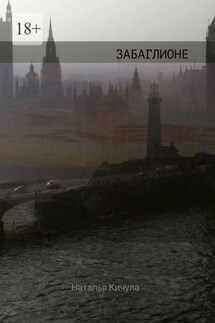Untrodden paths - страница 5
Tsvetochkin: Over there, in the bushes behind the bench. Would you like to play chess or dominos?
Andrei: Naah, any brain use is strictly proscribed for me by the authorities. I’d much rather sun-bathe in the bushes.
Tsvetochkin: OK, then.
Andrei, approaching a bench among lilac bushes on which Victor Vasilyevich, stripped to the waist, is sunbathing: May I?
Victor: Sure, enjoy yourself, if labor therapy is not for you.
Andrei: I’m not inclined to work for the communists, besides they won’t risk letting me out. Frankly, I’m surprised they let me out in the garden.
Victor: They let everyone out in the garden here. Unless you are strapped to your bunk, of course.
Andrei: Well, that’s a comfort. By the way, I’ve thought of your new and the Hegelian old dialectics. How do they exactly differ? You’ve said you just added maxims there…
Victor: Caught a philosophic fever in the nuthouse?
Andrei: No, I was just wondering: If you really created a universal methodology, it would actually mean a revolution of our minds, because methodology is a kind of a universal key used for deciphering, the key which could change our whole outlook. Isn’t that so?
Victor: Yes, though I’d compare it to a grammar, a syntax: If you do not know its rules, you won’t understand the language, even if you know the meaning of every word. That’s one thing; the other is that, more importantly, having changed our world outlook, this methodology will change out attitude toward the world.
As for differences, it differs from the old one not so much by a greater number of new notions and maxims as by a newer and more detailed interpretation of the old ones, ranging from conditionality and relativity of all notions and maxims, like: the unity and struggle of the opposites; a shift of quantity into quality and negation of negation – all this may be true under certain conditions with certain points of reference, and not true in others.
The old dialectics has none of this, nor has it a universal measure for various processes and phenomena.
Andrei: Wait a minute, how can there be a universal measure in this extremely diverse material world?
Victor: There can be and is! We are simply attracted and confused by the superficial visible diversity of the world, the variety of its forms. Prying into its content, its essence, is boring and unattractive. Nonetheless, this world has one feature in common which serves both as a reference point and a universal measure: it’s
Time.
Andrei: Time?
Victor: Sure. As you know, everything in this world changes, everything flows. Therefore, the only universal measure there can possibly be is Time.
The fact that the old dialectics explain the developments and processes by the struggle of opposites which have a common root; the fact that this struggle is perceived, first, as a quantitative change, growth, then as a qualitative shift; that during this struggle a negation of negation takes place, and contradictions are eliminated – all this shows that we are dealing not with a methodology, but a universal description, because there is no universal measure in it.
Appropriately, the practical value of such description is rather limited, actually close to nil. Because the world description is nothing but a sketch, a diagram, whereas methodology is a map which has its scale, points of reference, or cardinal points, and its set of signs.






